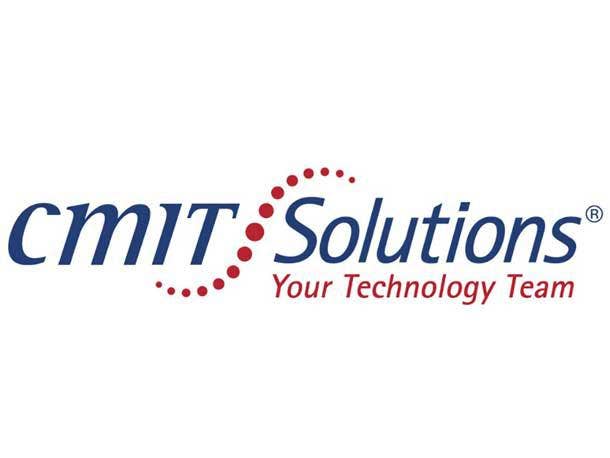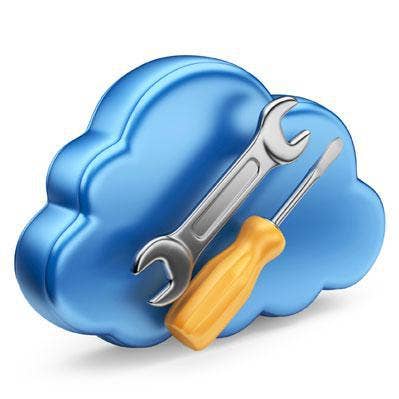CMIT CEO: MSP Franchise Business Hits $100M Mark
‘Each owner owns their own location. ... They come into our system and we launch them. And we spend a tremendous amount of time teaching them how to market and sell and deliver MSP services,’ says CMIT Solutions CEO Roger Lewis.

Franchising: Breaking Down Barriers To The MSP Business
In IT, there is nothing like the lure of recurring revenue.
MSPs have traditionally entered the business after a few years, or sometimes decades, of selling and delivering hardware and software, while others have funneled their experience in IT services from years of working at service providers or vendors into their own businesses.
However, some entrepreneurs may jump straight to forming their own MSPs via a franchise. One franchise operation focused exclusively on helping entrepreneurs build an MSP practice is Austin, Texas-based CMIT Solutions which, according to CEO Roger Lewis, has found the formula to help others become MSPs.
[Related: The 20’s MSP M&A Spree: Six In A Month, Dozens More To Come]
CMIT provides all the support and tools, along with a partner network that includes vendors such as Microsoft, Dell, Lexmark, Intuit, Barracuda and Kaseya-Datto, that are needed to get started as an MSP, Lewis told CRN.
Potential MSPs, Lewis said, “come into our system, and we launch them. And we spend a tremendous amount of time teaching them how to market and sell and deliver MSP services. There’s ongoing training. We hook them up with partners and solutions and the IT stack, and really educate them on how to be successful in the IT space.”
CMIT already has over 250 territories covered in the U.S. by its MSPs and is continuing to grow. The company is also franchising its first Canadian MSP as part of a pilot project to expand to that country. And the company is growing. Its franchisewide revenue this year hit $100 million for the first time, Lewis said. The company was acquired by Craftsmen Capital in December 2018 and has not taken outside investment since.
Here is what Lewis had to say about CMIT and the franchising side of the MSP business.

Define CMIT. How do you describe the company?
CMIT is an MSP franchising system. And so I like to think of us as the Chick-fil-A of IT. ...
We’re scattered across about 253 territories across the United States. When I came on board as CEO in 2019, I realized that the system really lacked a unified vision. And so in 2020, we were about $68 million revenue at the time but could be a $100 million MSP. At the time we were on track to do it by 2026. I thought we could do it by 2023 if we really pivoted our sales and marketing programs, which we were in the process of revamping. And it was great. When I showed up at our last convention, people were cheering the $100 million goal, the first time our people had [a number] to rally behind. And it was great. And because of a lot of the marketing and sales programs—we brought on board marketing playbooks, marketing success wheels, a huge emphasis on pivoting to growing our businesses—we met our goal about a year ahead of schedule, and we had a huge celebration here in August. This is a big milestone for any organization. …
In November, we’re going to move on to that next vision and goal. But let’s enjoy this moment. We sent all the franchisees, all the owners, a bottle of champagne and an engraved glass and a popper. And we had a huge Zoom meeting where we celebrated. Our next convention is Nov. 1 through 3 where there’ll be a huge celebration around that theme.

So what’s going on in November?
Every year we get together with all our franchisees from across United States. This year, our annual convention is in Denver. It’s called CMIT Connect Live. And that’s where we all meet and gather in person and connect.
Now is that specifically for your franchisees, or will you also have clients there?
It is specifically for our franchisees. We do bring in some outside speakers who may be in the MSP space or have been through growing a business or who specialize in a certain field as an expert. But in general, it’s for our franchisees. And we also have our sponsors there too, our partners.
So in our conversation so far, you’ve described yourself both as an MSP and as an MSP franchise company. So what is an MSP franchise company? How does that work?
Each owner owns their own location. And like I mentioned, we have 250-plus territories throughout the United States. And they buy into a system where we are the home office—in our Chick-fil-A example, we are the Chick-fil-A headquarters—they come into our system and we launch them. And we spend a tremendous amount of time teaching them how to market and sell and deliver MSP services. There’s ongoing training. We hook them up with partners and solutions and the IT stack and really educate them on how to be successful in the IT space.

Are the franchisees already MSPs when they join? Or are these companies that are looking to become MSPs?
No, it’s not companies who usually start and launch with us. It’s an individual who has a dream of being an entrepreneur and wants to own his own business. So it’s traditionally someone who maybe has burned out on corporate America, and is tired of working for ‘the man’ and really wants to take control of his career. Or we have people whose dream is to own their own business.
How hard is it for an individual who’s interested in this who may like you said not want to work for ‘the man’ anymore, to become an MSP?
Well, that’s the beauty of a franchise. And not just our franchise, but any franchise. We are going to teach you the skills that you need to be successful. You have to have the passion and drive to want to succeed. There is a buy-in cost to any franchise. But at the end of the day, sometimes I tell people, it’s being comfortable being uncomfortable. Because maybe you owned sales before, but now as a business owner you own sales, marketing, accounting, the whole circle, right? If you’re comfortable embracing that, you’re a candidate for us. So we’re going to teach you how to sell and market and do service delivery, how to make relationships, how to quote. We have coaches we connect you up with. So it’s relatively straightforward. The first step is really deciding that you want to own your own business, you want to be in business for yourself.

Individuals join the franchise, but who implements the services or delivers the services to the clients? Is it something that they could do as a one-man or one-woman operation, or does CMIT have a centralized services offering?
We don’t have a centralized services out of the home office. We certainly have partnerships which deliver some of the services, but in general all our locations across the U.S. are growing and they own their own tech teams. As they implement, we usually help them get other franchisee owners to maybe help them deliver their first couple of clients, but they quickly hit a size where they have their own techs and their own employees. Again, it’s very similar to a Chick-fil-A where each location hires employees to deliver and make the sandwiches and to deliver the food service.
How do you recruit the franchisees?
We’re featured in Entrepreneur magazine as one of the top franchises in the country. I think they ranked the Top 500. And we’re always in. If people are interested in the IT space, we’re there. [Some people] go to franchising sites, or they’ll hire a broker who will introduce them to us. There are lots of different ways that they enter in. And typically, the first part of the process is an introductory call.

Of all those who have joined CMIT as a franchisee, has anyone ever left, or said they no longer want the do this?
They sign a franchise agreement for a period of years, and after that’s over, in any franchise you get people moving on. More likely what happens is people grow their business and then sell it as an exit. Or maybe they’re looking to retire. We have a large recurring revenue base in the MSP space. And so you’re creating a lot of value with that recurring revenue. So we’ve had people who sold their businesses and did quite well and have now moved on.
You said CMIT’s revenue hit the $100 million mark. Is this services revenue or franchise fees?
It’s kind of like when you think of McDonald’s and they said a million served, right? It wasn’t like one location served a million, it was all their locations. And so we’re really marketed as one unified brand. A lot of companies probably don’t even know we’re a franchise per se. We market ourselves as one unified brand across the United States. We’re CMIT. And these guys are helping each other out all the time. Unlike a Chick-fil-A or McDonald’s, our techs help each other out. Locations help each other out, from service needs to help with specific requests. So there’s a lot of collaboration across the system. And so this is systemwide revenue of $100 million.

Is CMIT looking for more franchisees?
Oh, always. We welcome new franchisees to join. There are certain areas where we are sold out, but we certainly have a lot of real estate across the U.S. So we’re always talking with entrepreneurs who are looking maybe to take control of their careers, and we embrace and welcome that.
You mentioned 250-some territories in the U.S. How about international or U.S. territories?
We have one franchisee that we’re piloting in Canada. There’s so much opportunity here in the United States. We’re really focused on that. One of the things I’ve learned in my history is an entrepreneur is, let’s focus on national growth first because until you really build that out, you don’t really want to tackle international. And right now, we’re just getting cooking. Remember, we were at $68 million in revenue just two and a half years ago, and have grown this to $100 million. There’s a huge momentum behind North America sales here. And in the MSP space, the total cybersecurity market is probably $400 billion here in the United States. The MSP portion of that spend is probably 75 percent. So we’re really focused on the U.S. as opposed to addressing the international challenges. Certainly, there’ll be at a time when that’s appropriate.
So 253 territories. Is it one MSP per territory?
No, we have owners who own multiple territories. There’s approximately 165 owners. It varies. We were launching classes every quarter, but let’s say approximately around there. And then you have owners who own multiple territories.

Given that the franchisees are all using the same CMIT Solutions name but coming from varied backgrounds, how do you prevent one franchisee from harming the CMIT brand?
It’s true in any business and any franchise that someone can make a mistake. I think you minimize your chances there by having a really good education and training program. If you take our marketing program, we have marketing playbooks, and every month there’s a whole set of activities we want them to do, and we provide them everything from their Google ads, their banners, to everything they need to market an MSP. And the same for the service delivery side. There are playbooks of how to execute and roll out cybersecurity services and best practices. We have cybersecurity certification programs through our partners. And so we certainly are teaching all the best practices of the industry, and how to market, sell and deliver.
Was CMIT Solutions founded specifically as a franchisor? Or was it originally an MSP itself?
CMIT was founded in 1996 when the MSP market didn’t yet exist. CMIT was just an IT service and support company. It was break-fix, and was at that time focused on the residential market. An interesting tidbit: early on, ‘CMIT’ stood for ‘Computer Moms IT.’ It was founded by Georgia Jones. That was her name for the company. She got a few moms involved to be franchise owners, but she quickly found out that there were there were a lot of men who wanted to become franchise owners. She wanted to rethink the game and not turn away half the population. And so it went from there to Computer Managed IT, CMIT. And about 2007, as MSPs came into existence, that’s when this really took off.